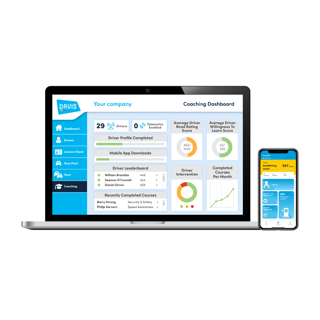Fleets are being delivered daily rental vehicles with safety issues, according to the Association of Fleet Professionals (AFPs).
The industry body says members have reported being offered hire cars and vans in an unacceptable mechanical condition.
AFP chair, Paul Hollick, explained that the issue was recently raised by its Mega Fleets Committee and appears to be a wider problem across the AFP membership.
“Essentially, we’re seeing hire vehicles being delivered to fleets that are not in a roadworthy condition,” he said.
“While this has always happened occasionally, there is a perception that the condition of hire vehicles is becoming noticeably poorer, although it appears to be a situation that appears to be affecting some hire companies more often than others.”
Toby Poston, director of corporate affairs at the trade body representing the rental industry, the British Vehicle Rental and Leasing Association (BVRLA), said: “The global vehicle supply issues that came to a head a couple of years ago have receded, but it takes time to refresh an entire fleet.
“The rental fleet is still somewhat older than its pre-pandemic norms. An older fleet means a greater likelihood of mechanical issues or faults emerging. That is unavoidable, regardless of how well maintained a vehicle is.”
He added: “Through the BVRLA Rental Code of Conduct, members should ensure every vehicle is provided in roadworthy condition, having been subject to regular checks.
“All customers of BVRLA members have access to the association’s Trading Standards-approved Alternative Dispute Resolution service, for instances where they remain dissatisfied after raising a complaint.”
Many of the issues, says the AFP, stem from both poor long-term maintenance, with vehicles breaking down having a range of outstanding fault codes, as well as others being delivered with more immediate and easily apparent problems.
“The very least that a fleet should expect of its daily rental supplier is that vehicles are delivered in a roadworthy condition and sadly, that doesn’t always appear to be happening, even from some major suppliers,” said Hollick.
“Pre-Covid, daily rental businesses bought cars and vans to operate on a fast cycle. Except for specialist vehicles, it was unusual to find a rental vehicle much older than a year.
“With the arrival of the pandemic, most embarked on massive disposal programmes but then experienced an immediate surge in demand once working practices returned to something approaching normality.
“Unable to return to a fast-cycle model due to production shortages, they bought from all kinds of sources, including a number of used vehicles.”
He suggests that a lot of the cars and vans now seen on daily rental fleets are these vehicles, with many on 20 plates or older, which may explain the reason why issues surrounding condition are arising.
Hollick added: “Running cars and vans over several years, through their first MOT and beyond, is something that many daily rental fleets simply haven’t had to deal with previously in this respect.”
The advice from the AFP to fleets experiencing problems of this type is to ensure that the vehicle is not driven and the issue is immediately reported to the rental company.
“You then need to have serious conversations with your suppliers and if you are not satisfied with the answers, to look for new options," said Hollick.
“The time when you could assume a daily rental vehicle delivered for use by an employee was almost certainly safe for use appears to be past, at least for the moment.”






















Login to comment
Comments
No comments have been made yet.